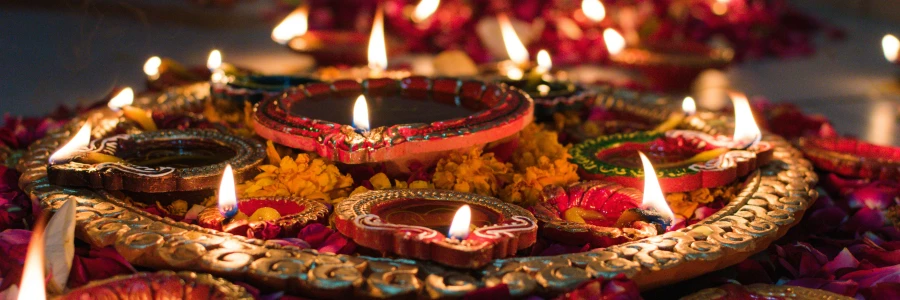
It's Diwali
Posted on Wednesday, 22 October 2025 under Culture and Belonging,
Diwali, a five-day festival, was celebrated this week.
The word Diwali comes from the Sanskrit word Deepavali, which means "rows of lighted lamps". It's primarily a Hindu festival, but other religions - Jains Jains, Sikhs, Newar Buddhists, and Hindus of Eastern India and Bangladesh all celebrate Diwali in their own ways.
While the religious significance of Diwali varies, you'll often see Hindu homes decorated with lights to guide the Lakshmi, goddess of wealth and fortune, into people's homes. You may see ‘rangoli’, colourful designs made on the floor or on a table at the entrance of homes, to bring wealth and good luck. Rangoli can be made out of powdered limestone, colourful rocks, flower petals, and other colourful items. You'll probably also see fireworks set off. During this time, people also clean their homes and offices, as this festival is associated with cleanliness.
On the second day of Diwali, sweets are made and eaten, and given to family and friends. These are made using flour, semolina, rice, dry fruit pieces powders or paste, and ghee. These are made into a variety of shapes, or rolled or stuffed. Here are some popular ones:
- Gulab Jamun - a deep-fried dumpling made with cardamom and steeped in syrup
- Barfi - a fudge made with a specific type of condensed milk
- Laddu - sweets rolled into balls and made with ghee, oil, flour, sugar, often nuts as well
- Halwa - grated vegetables cooked in ghee, sugar, and condensed milk - commonly using pumpkin and carrot
Diwali is also an official holiday in many countries, including India, Fiji, Malaysia, and Singapore.



